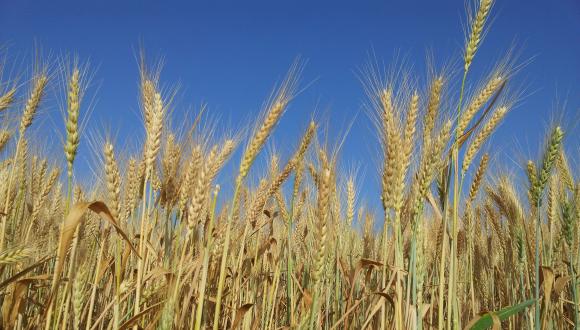Expert Analysis: Ensuring the World’s Food Supply
The Bible tells of the People of Israel being saved from hunger by manna sent from heaven. We may soon find ourselves in need of manna, as arguably the largest challenge for the 21st century is ensuring a constant supply of nutritious food for the world.
The world's population is predicted to reach 9 billion by 2050, which is three times the population when I was born half a century ago. This rapid increase in population has led to massive urbanization of land once used for agriculture, resulting in the paradox that as more mouths to feed are added, less land is available to grow the necessary food. The growing population also puts enormous strains on our already endangered sources of fresh water. Add to this equation the environmental effects of global warming and we have a potential global disaster waiting to happen.
So how can we provide the world with more nutritious food, with less land, less water and a hotter climate?
This is such a burgeoning and critical challenge for scientists and policymakers alike, that our efforts have to go first and foremost to solving the problems of food security that we face right now.
Indeed, already today over half the world’s population suffers from some form of food insecurity: About one billion people are hungry, while another three billion worldwide suffer from vitamin and mineral deficiencies. Another 1 billion, especially in North America and Europe, suffer from a new type of food security problem – over consumption.

Pictured: Prof. Chamovitz and his best-selling book, "What A Plant Knows: A Field Guide to the Senses."
Providing long-term solutions to these issues requires advances not only in plant biology, but also a reevaluation of food policy as it relates to economics, law, politics and public health. For example, issues such as maintenance of wild gene pools, monitoring of bacterial populations, the economic significance of water utilization and the use of arable land have aspects that begin in the academy and end in public policy.
A consistent supply of nutritious food and a secure supply of clean water are essential for ensuring public health. Economic models clearly show that funds invested in basic R&D in plant genetics provide a massive return, but this is only felt years ahead, time frames not often favored by short-thinking politicians. Thus research to develop crops that have higher yields under hotter and drier conditions must begin today.
Concerted interdisciplinary collaboration between plant scientists, policy and legal experts, economists and public health professionals has the potential to provide long-term solutions to the problems of food security. In this context the Manna Center for Plant Biosciences at Tel Aviv University is developing a new program in Food Security and Safety, the first of its kind in Israel. This interdisciplinary program will bring together researchers from diverse academic disciplines from around the world to promote innovative research, to develop outreach programs with developing countries, and to prepare the next generation of scientists and policymakers to guide global food security issues in the years to come.
Prof. Daniel Chamovitz is the director of the Manna Center for Plant Biosciences at Tel Aviv University. His work has been featured in The Boston Globe, The Wall Street Journal and The Daily Beast, and on NPR, the BBC and more. He is the author of "What a Plant Knows: A Field Guide to the Senses."






